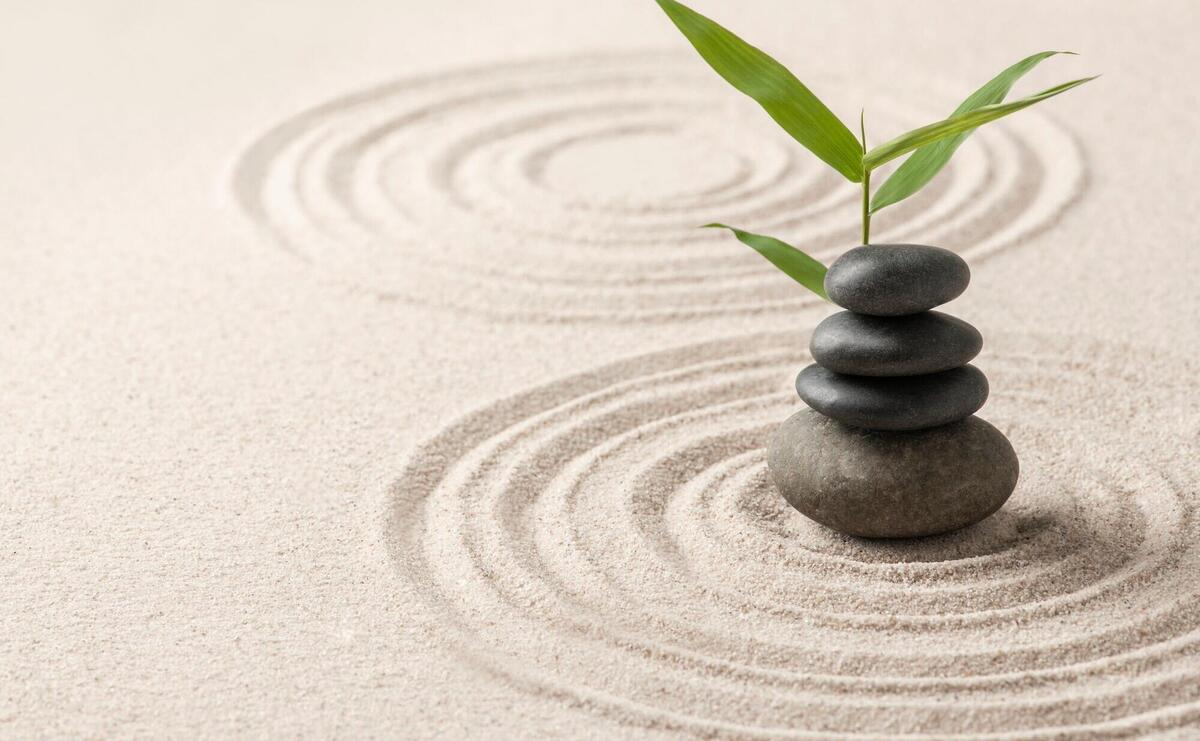Mindfulness Benefits: a Path to Improved Well-being
Do you ever notice if your mind is so full of thoughts that it feels too crowded in there? It's like your brain is always busy thinking about yesterday or planning for tomorrow, and it forgets just to enjoy it right now.
Our minds are good at making up stories and daydreaming about all sorts of things, which means we're not always paying attention to what we're actually doing. Sometimes, we can get caught up in make-believe worries that aren't even real.
Mindfulness is like a quiet space where you can take a break from all that noise in your head. It's not always easy, but you can get better at it with a bit of practice every day.
If you want to make your days a bit more peaceful and enjoy the little moments, you're in the right spot to start.

Short Summary
- Mindfulness clears the mind of overwhelming thoughts, creating a sense of inner calm.
- It assists in managing emotions, preventing overreactions to stressors.
- This practice sharpens focus and attention span, which is useful in a distraction-filled world.
- Improves listening and empathy, contributing to stronger, more meaningful relationships.
- Provides tools for improved mental health and resilience, promoting psychological well-being.
What Is Mindfulness?
Mindfulness is a form of meditation stemming from Buddhist traditions, but it's also a state of being that can be cultivated through practice. It involves paying attention to the present moment with openness, curiosity, and a willingness to be with what is. Mindfulness is about being fully present in whatever is happening, without overreaction or overwhelming emotion.
Mindfulness practitioners learn to observe their thoughts and feelings without judgment — noticing and letting them go, like leaves floating on a stream. This practice is believed to lead to greater calmness, clarity, and insight. In a world that's often rushing and reactive, mindfulness helps individuals slow down and respond more effectively to the challenges of daily life.
Benefits Mindfulness
Mindfulness is a mental exercise that helps you stay in the moment and has many proven benefits. A large review of studies has found that it's very effective in improving mental and physical health for most people. This evidence shows that mindfulness can make a big difference in how good we feel in our lives.
Stress Reduction
One of the most recognized benefits of mindfulness is its ability to reduce stress. Mindfulness practices, such as meditation and deep breathing, help them become more aware of their thoughts and feelings, allowing them to respond to stressors in a calmer and more composed manner. Regular mindfulness practice can lead to lower levels of the stress hormone cortisol and a greater sense of overall relaxation.
Anxiety and Depression Reduction
Mindfulness has been shown to be effective in reducing symptoms of anxiety and depression. By observing and accepting their thoughts and emotions without judgment, individuals can gain a sense of control over their mental states. Mindfulness-based interventions, like Mindfulness-Based Stress Reduction (MBSR) and Mindfulness-Based Cognitive Therapy (MBCT), are often used as part of therapeutic approaches to treat anxiety and depression.
Increased Self-Awareness
Mindfulness encourages self-reflection and self-awareness. It allows individuals to gain insight into their thought patterns, emotional reactions, and behaviors. This heightened self-awareness can lead to a deeper understanding of one's own values, goals, and motivations, ultimately fostering personal growth and development.
Improved Relationships
Practicing mindfulness can improve relationships with others. By being fully present in conversations and interactions, individuals can become better listeners and more empathetic communicators. This can lead to improved conflict resolution, stronger connections, and more satisfying relationships with family, friends, and colleagues.
Better Communication Skills
Mindfulness enhances communication skills by promoting active listening and non-reactive responding. It helps individuals become more attuned to both verbal and nonverbal cues, leading to more effective and compassionate communication. This can be mainly beneficial in professional settings and personal relationships.
Improved Concentration
Mindfulness exercises often focus on a specific object or sensation, such as the breath or bodily sensations. This practice can sharpen concentration and improve attention span. It is particularly valuable in an age of constant distractions and information overload.
Increased Creativity
Mindfulness encourages a state of open awareness where new ideas and insights can emerge. Individuals can tap into their creative potential by quieting the mind and letting go of preconceived notions. Many artists, writers, and innovators use mindfulness techniques to access their creative flow and overcome creative blocks.
Practicing Mindfulness Daily

Incorporating mindfulness into our daily lives doesn't have to be complicated. It's about finding simple ways to be more present and aware of the things we do every day, turning ordinary moments into opportunities for calm and clarity.
There are multiple ways to integrate mindfulness into your daily routine:
Morning Routine: Begin your day with a few minutes of quiet breathing or meditation. This sets a calm tone for whatever comes next. As you brush your teeth or take your morning shower, pay attention to the sensory details—the taste of the toothpaste and the feel of the water.
Mindful Eating: Turn meals into an opportunity for mindfulness. Eat slowly, savor each bite, and truly appreciate the flavors and textures. This enhances the eating experience and can help with digestion and satiety.
Work or Study Breaks: Take short breaks to practice deep breathing or a body scan. Even a few minutes of focusing on your breath can reset your stress levels and improve concentration.
Commute: Use your travel time to notice things you usually overlook. If you’re driving, feel the steering wheel, listen to the traffic sounds, and notice the rhythm of your breathing. If you’re a passenger, observe the world passing by without judgment.
Walking: If possible, take a walk during the day. As you walk, pay attention to each step, the movement of your body, and how your feet feel as they touch the ground.
Waiting Times: Use moments of waiting, like standing in line or waiting for a computer to boot up, to bring your awareness to your breath and body. Notice any areas of tension and consciously relax them.
Evening Wind-Down:
- Before bed, reflect on your day.
- Think about moments where you were truly present.
- Consider what you learned and how you might bring more mindfulness into the next day.
Incorporating mindfulness into daily activities doesn't need to be overwhelming. Start with one or two practices and build from there. Over time, these moments of mindfulness can lead to a more attentive and appreciative approach to daily life.
Mindfulness Meditation Techniques
Mindfulness meditation practice involves different techniques to help calm the mind and reduce stress. Each technique has its focus and benefits:

Focused Attention Meditation
This technique involves concentrating on a single object, sound, or thought, such as a focused breathing meditation. The main goal is to train your brain to focus on the present moment and to bring your attention back to your focus point whenever it wanders. This can be a candle flame, a mantra, or even a picture. It's about keeping your attention fixed to improve your ability to concentrate and stay present.
Body Scan Meditation
In this technique, you closely observe different body parts in a sequence, usually starting from the toes and moving upwards. As you focus on each area, you observe any sensations there without judgment. It might be tension, warmth, or even nothing at all. The progressive muscle relaxation involved in the body scan can help you become more aware of how stress affects your body and can often lead to a feeling of relaxation.
Breath Awareness Meditation
Breath awareness is a simple form of mindfulness meditation where you focus on your breathing. You might count your breaths or simply pay attention to the sensation of breathing in and out. This practice helps keep your mind anchored in the present moment, which can make you feel more centered and calm.
Loving-kindness Meditation
Also known as Metta meditation, this technique centers around directing feelings of love and kindness towards yourself and others. You silently send wishes of well-being and happiness to friends, family, acquaintances, and even people you may have difficulty with. Loving-kindness meditation can help you feel more connected to others and cultivate a sense of compassion and empathy.
Practicing these techniques regularly can develop a stronger, more focused mind and a caring, compassionate heart. Each has its own way of bringing you back to the present and helping you find a sense of peace.
Mindfulness-based Therapies
Mindfulness-based therapies are a group of programs that teach you how to deal with difficult feelings and stress by staying focused on what's happening right now. These programs are helpful because they teach you how to slow down and not let tough emotions control you. They can make you feel more at peace and more adept at navigating the ups and downs of life. Now, let's look at three kinds of these therapies in more detail.
Mindfulness-Based Stress Reduction (MBSR)
MBSR is a course that runs for about two months, where you learn to calm down and not get too caught up in the busy world around you. You'll do things like paying close attention to your breathing, noticing how your body feels from head to toe, and doing some easy stretches. These activities can help you feel less stressed out. It's like learning to take a step back and watch your worries without letting them bother you too much. People who finish this course often say they feel less stressed and more in control of their lives.
Mindfulness-Based Cognitive Therapy (MBCT)
MBCT is a special program for people who have felt down or suffered from depression and don't want to feel that way again. In this program, you'll learn to be more aware of your thoughts and feelings without getting lost in them. It incorporates cognitive stimulation therapy, helping you to manage thoughts and emotions more effectively. It's a bit like learning to sit by a river and watch leaves (like your thoughts and feelings) float by without picking them up.
This way, you can notice when you're starting to feel down and do something about it before it gets worse. This program can help keep those heavy feelings of sadness from coming back.
Dialectical Behavior Therapy (DBT)
DBT is a program for people who have very intense emotions and might do things that hurt themselves or make life harder. It teaches skills to help you understand and manage your emotions, like mindfulness, which is about being fully in the present and not judging yourself. You'll also learn other skills like how to get through tough times without freaking out, how to deal with other people in a calm way, and how to ask for what you need without being aggressive.
It's about finding a balance between accepting yourself just as you are and knowing that there are things you can change for the better. People who go through DBT often find they have better relationships and feel more stable.
Overcoming Challenges
Research suggests that starting a mindfulness practice can be challenging, especially when it's hard to find time or when your thoughts keep drifting away. Remember, even short daily sessions can be beneficial. If your mind wanders, gently refocus on the present — this helps strengthen your focus. Mindfulness meditation is like a seed that grows over time with consistent practice. On tough days, remind yourself why you started and be patient with yourself. If you miss a day, it's fine; just try again tomorrow. Each new day is an opportunity to practice mindfulness.

Strategies for Staying Consistent:
1. Set a Regular Time and Place: Having a routine can help. Try to practice mindfulness at the same time and place every day. This could be a quiet corner of your home in the morning or a park bench during your lunch break. The key is consistency.
2. Start Small: If sitting for 20 minutes seems too much, start with 5 minutes. You can gradually increase your time once you’re comfortable with a few minutes.
3. Use Reminders: Set reminders on your phone or put sticky notes in places where you’ll see them. These can prompt you to take a moment for mindfulness throughout the day.
4. Mix It Up: Mindfulness can be practiced in many ways—sitting, walking, eating, or even while doing chores. If you get bored with one method, try another to keep things interesting.
5. Keep a Journal: Write down what you notice about your practice, how you feel before and after, and any thoughts that come up. This can help you see your progress over time.
6. Be Kind to Yourself: Don’t beat yourself up if you miss a day or find it difficult to concentrate. Mindfulness is about observing without judgment—not just during practice, but also in how you treat yourself.
7. Connect with a Community: Join a mindfulness group or class. Being part of a community can provide encouragement and motivation to continue.
8. Reflect on the Benefits: Remember why you started practicing mindfulness and the benefits you’ve noticed. This can help you stay motivated.
Using these strategies, you can build a more consistent mindfulness practice and overcome any resistance you might feel. Remember, the goal of mindfulness is not to empty the mind of thoughts, but to become more aware of your thoughts and feelings without getting caught up in them.
Conclusion
Mindfulness is more than just a practice. Research ties mindfulness training to significant improvements in both physical and psychological symptoms associated with stress and anxiety.
By participating in a mindfulness meditation course, individuals can learn effective strategies to incorporate mindfulness into their lives, leading to a more peaceful mind and heart open to the fullness of life.
Frequently Asked Questions
What Does It Mean to Be Mindful?
Being mindful means attentively and kindly noticing the present moment and your reactions to it, allowing thoughtful responses rather than impulsive ones.
How Does Mindfulness Improve Mental Health?
Mindfulness improves mental health by promoting non-judgmental awareness of the present, helping reduce stress and negative thoughts while boosting emotional regulation and self-awareness, leading to better relationships and overall well-being.
How Powerful Is Mindfulness Meditation?
Mindfulness meditation is quite potent; it can significantly reduce stress and improve mental clarity, emotional balance, and physical health. Regular practice has been shown to change the brain, leading to better mental performance and overall well-being.